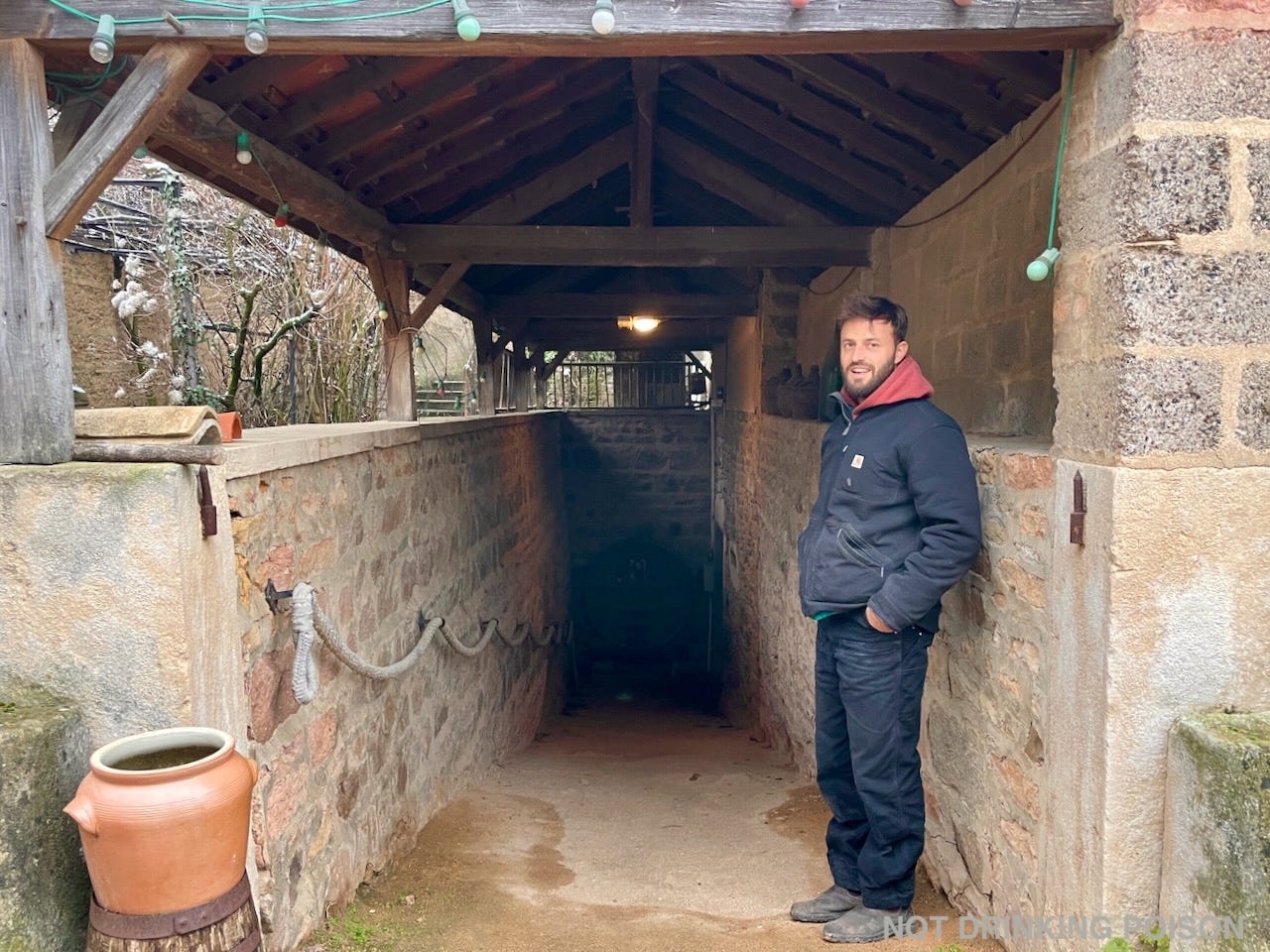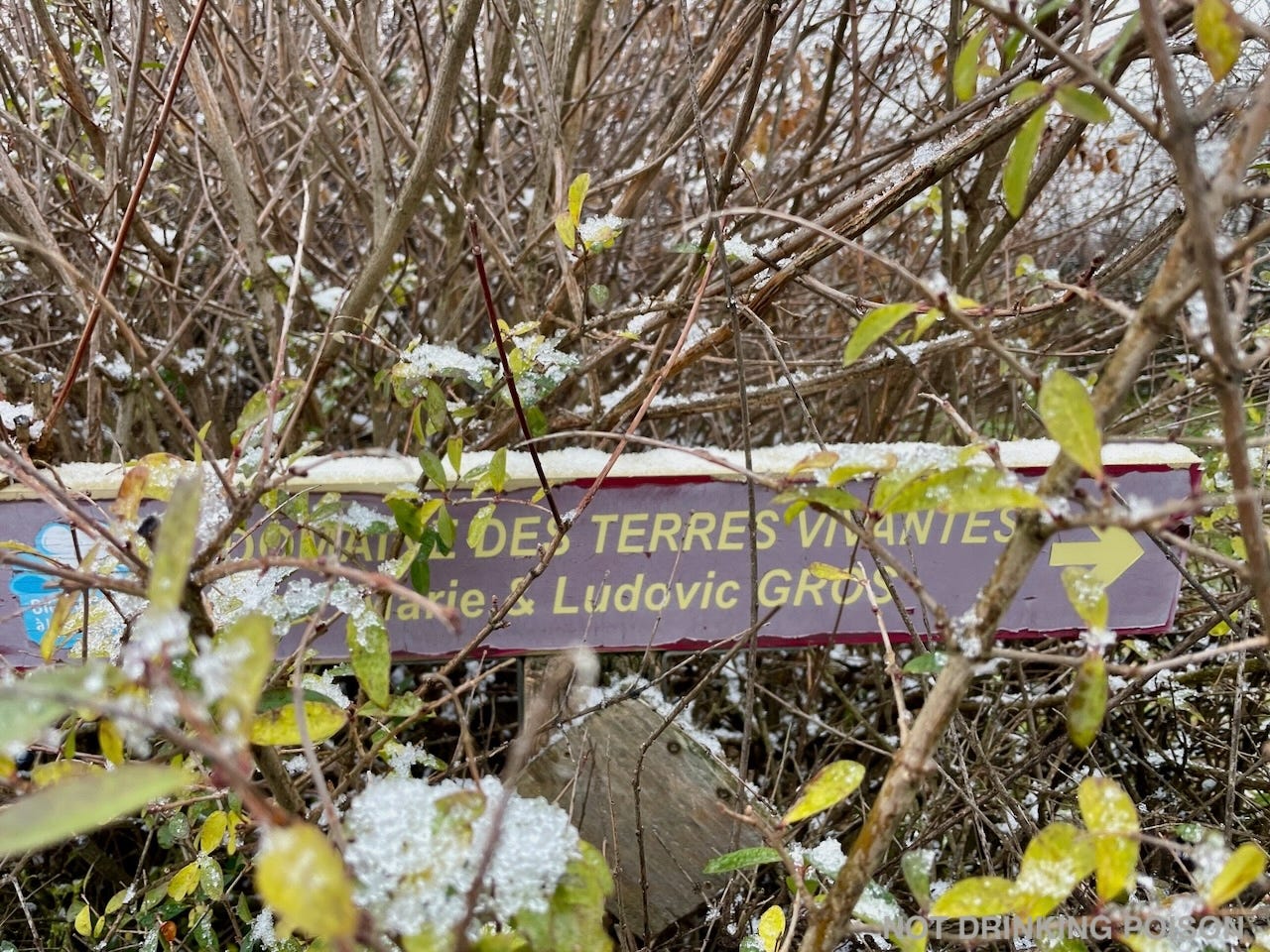Eloi Gros: An Homage to Vanishing Beaujolais-Villages
Domaine Lapierre's cellar master of recent years hails from a lineage of organic polyculture in Blacé. Since 2022, he's made his own unsulfited wines from steep sites in Vaux and Le Perreon.

Eloi Gros is the young vineyard manager and cellar master at Domaine Lapierre. In his spare time, he is converting 0.90ha of Beaujolais-Villages vineyards to organics, split between two sites in Vaux and Le Perréon, respectively. Gros’ first vintage of unsulfited unfiltered natural wine, which he has yet to commercialize, is 2022 (just 1200 bottles).
Gros is the son of Domaine des Terres Vivantes’ Ludovic and Marie Gros, polycultural wine farmers in Blacé, whose 5ha of gamay, chardonnay, chenin, and syrah vineyards are approaching twenty years in organics (and, more recently, biodynamics). The couple also produce truly outstanding bread, from flour they grow, store, and mill on-site.
I first met Gros several years ago in the course of a pizza party hosted at Domaine Lapierre by Camille Lapierre. I had the occasion to visit him and his parents in January, and was overjoyed to discover, at their wine farm, a rare bastion of highly principled polycultural biodynamic production and local distribution in the Beaujolais. I left with the strong impression that the natural wine expertise Gros is obtaining at Domaine Lapierre, combined with his family’s impressive farming heritage, heralds good things.
Quick Facts
Eloi Gros farms 0.90ha of gamay (in the process of organic conversion) in the Beaujolais-Villages appellation. He began with 0.60ha of “Sous Montmain” in Vaux in 2022, adding 0.30ha of “Au Laveur” in Le Pérreon in 2023.
He vats whole-cluster, without prior refrigeration of the harvest. Macerations have until now been in the ten-day range. Gros employs his father’s small mechanized vertical press. The liquid phase of fermentation, along with elévage, occurs in barrel (with also a few demi-muid for “Sous Montmain.”) Wine see no additives, no sulfitage, no degassing, no filtration.
Gros is also the vineyard manager and cellar master at Domaine Lapierre, where he has worked since 2019. In parallel with his experience there, he has done work experience alongside Michel Guignier in Vauxrenard. He credits Fabrice Parisot at Les Caves du Forum in Reims with giving him a taste for natural wine.
LIVING LANDS
Eloi Gros’ parents dubbed their polycultural estate in Blacé, where Beaujolais-Villages gives way to Beaujolais tout court, Domaine des Terres Vivantes. The truth of the claim is perceptible in the overgrowth that obscures the domaine’s sign, further concealing an already very discreet couple.
Long before I visit Gros on a cloudy midday in January, I’ve seen the route de la Tallebarde before, on visits to Sylvère Trichard, whose home and winery are across the street. Back in 2016, I even, once, contacted Gros’ parents, Ludovic and Marie, after learning they produced organic wine. They were unavailable to see me due to other engagements, and I let the matter drop.
Seven or eight years later, it is Eloi who welcomes me to the family farm, where he shares space and material with his parents.
“You know how there are vignerons who are very good at selling their wine but they’re not often in their vines? My father is the opposite,” he jokes, as we descend to the cellar.



